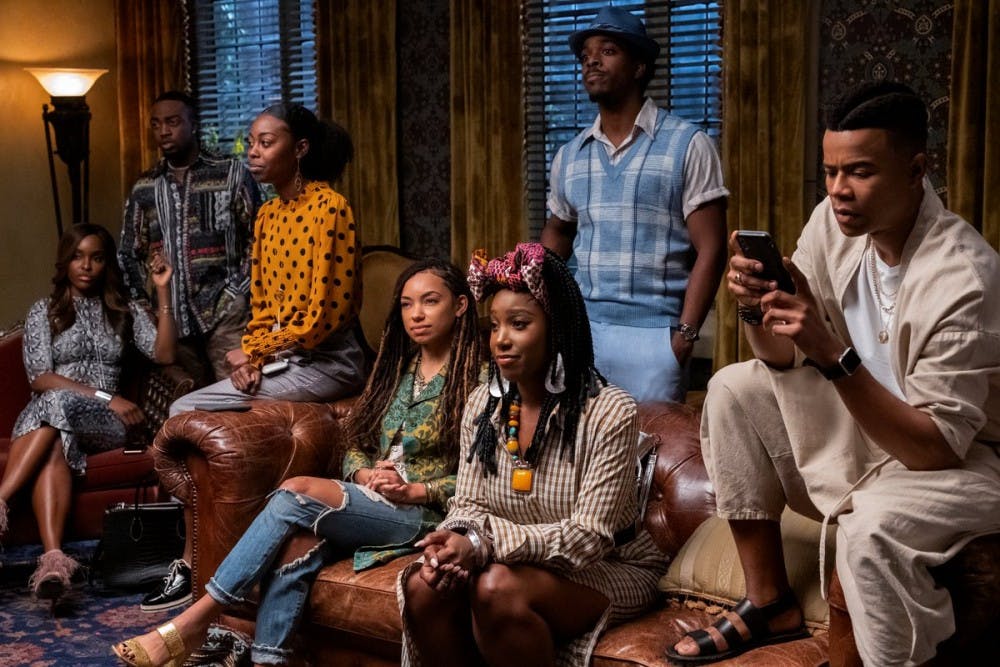Arguably Netflix’s most progressive show, Dear White People, is back and more convoluted than ever.
The third season of the Netflix Original features all the characters the audience knows and loves but with seemingly different traits and problems than the previous two seasons.
The third season follows The Order, a group of elite African American people that was somewhat introduced toward the end of the second season. Sam (Logan Browning) and Lionel (DeRon Horton) made it their mission to discover the order and potentially join. However, they quickly come to the conclusion that The Order isn’t worth their time and abandon one of the biggest plot points of the second season.
Lionel begins to write a column about a character named Chester, a gay man struggling to make it through the trials of romance in college, which mimics his own struggles. However, he quickly realizes his identity isn’t that much of a mystery, and he decides to stop hiding behind his writing and just do what he feels is right with his love life.
Sam is done with her podcast, Dear White People, and leaves it in the hands of Joelle (Ashley Blaine Featerson), but ultimately it isn’t the same. With Sam’s lack of activism while she focuses on her junior documentary, surprisingly it’s Troy (Brandon P. Bell) who steps up and leaves Pastiche to write his own activist publication, Fried Chicanery.
Troy’s first big piece in his publication exposes the new addition to the cast, Moses (Blair Underwood), who starts out as this great ally for the African American community at Winchester University, but the students quickly find out he’s guilty of sexual assault on multiple occasions, and Muffy (Caitlin Carver) is the only one brave enough to come forward. With the help of Coco (Antoinette Robertson), who lost all of her newfound kindness in the third season up until this moment of the plot, Muffy comes forward to accuse Moses for his wrongdoing.
Come to find out, The Order is actually an incredibly twisted organization that protects people like Moses from being exposed for his unforgivable actions. The entire duration of the show, Sam struggles with the focus of her documentary, but when she discovers this information, she decides to take down Moses, and The Order, through a documentary exposé.
Lionel and Sam are reeling over the new information they discover about The Order, when they connect with Troy and figure out he knows about it as well. The season ends on a cliffhanger, leaving the audience wondering what will happen to Sam and Dear White People, Lionel and his romance, Troy and Fried Chicanery and the fates of the other characters. But most importantly, the audience is left to wonder what will come of this incriminating information about The Order.
This season is very meta, constantly referencing Netflix and their own show a lot. The season is a great addition to a spectacular show; however, it became slightly confusing tonally, with everyone establishing new traits as if it were the first season of the show. That resulted in a really slow beginning, and it takes about four episodes to really get into the plot.
The show takes an unexpected break and switches the perspective to have Sam’s podcast geared a different direction, replacing the title with Dear Black People. The perspective comes out of nowhere, and it shows what Sam’s life would be if she chose to identify herself as a white woman, instead of a black woman, since she is multiracial. It’s an interesting direction to go on the show, but definitely needs more explanation if it’s going to be a recurring theme.
Overall, the season is messy but incredibly compelling, and it leans into each characters’ issues harder than before. The ending is satisfying, with Sam realizing “without anger, there is no justice, and if you feel anger, it just means you care about something.” Ultimately, the show’s main character gets her fire back, and it sets up for an anticipated fourth season.






